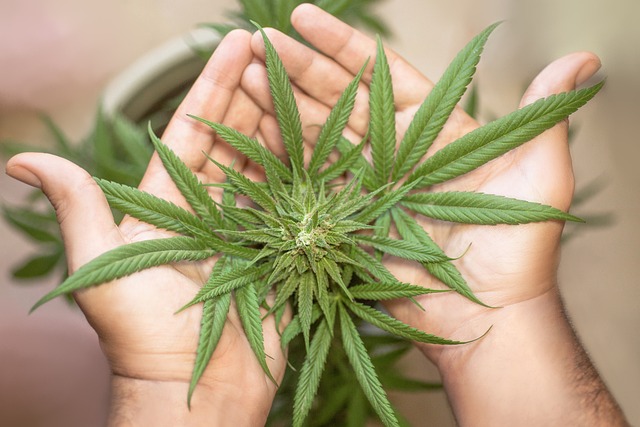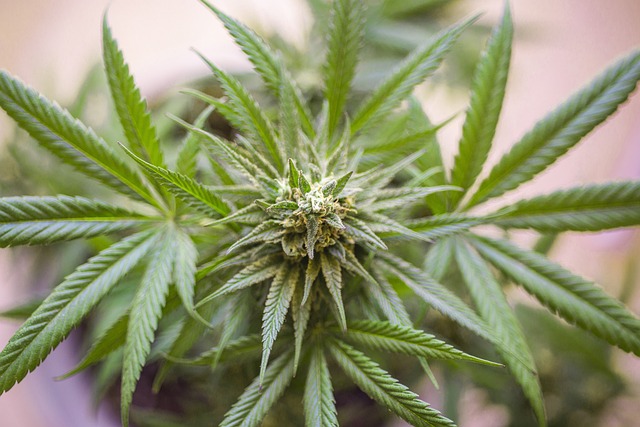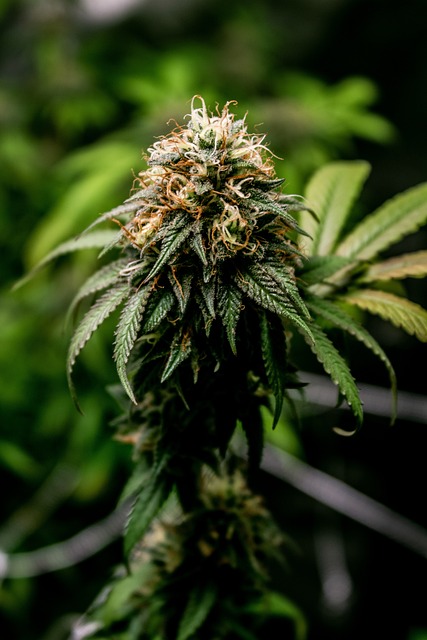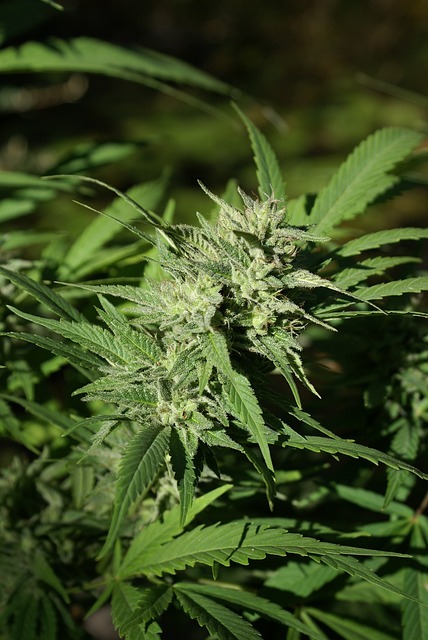Under the Michigan Regulation and Taxation of Marihuana Act (MRTMA), THCA (tetrahydrocannabinolic acid) derived from industrial hemp that complies with the 2018 Farm Bill is legal for medical marijuana patients to possess and use in Michigan. However, it's important to note that THCA sourced from high-THC cannabis remains illegal due to its psychoactive nature. Local municipalities may also have additional ordinances affecting the sale and use of THCA flower. This legal distinction is part of a complex environment that users must navigate carefully to remain compliant. THCA, which becomes psychoactive THC when heated, offers therapeutic potential without inducing a high, thanks to its anti-inflammatory and neuroprotectant properties. Its use in Michigan reflects a significant advancement for wellness and healthcare, with the legal status of THCA being 'THCA legal in Michigan' for certain products. Consumers can consume THCA raw or convert it into THC for psychoactive effects through decarboxylation. It's essential for consumers to stay informed about state and local laws to safely engage with THCA products, given the dynamic legislative environment surrounding cannabis in Michigan. Understanding the cultivation process is also crucial for maximizing THCA's potential benefits, adhering to Michigan's regulations on plant count, permits, and location restrictions.
Explore the nuanced world of THCA flower, a subject that’s garnering attention across Michigan. This article delves into the legal status of THCA within the state, unraveling its regulatory framework. It also elucidates the chemical intricacies behind this raw cannabinoid and its distinct effects, setting the stage for an informed discussion on its use. Additionally, a comprehensive guide on cultivating and consuming THCA flower in Michigan is provided, offering insights for both novice and seasoned users. Join us as we navigate the evolving landscape of THCA legality and experience.
- Exploring the Legal Landscape of THCA Flower in Michigan
- The Chemical Complexity and Effects of Raw THCA Flower
- Cultivation and Consumption: A Guide to Using THCA Flower in Michigan
Exploring the Legal Landscape of THCA Flower in Michigan

In recent years, the legal status of THCA flower, or tetrahydrocannabinolic acid, has been a point of interest and confusion in Michigan. As of the latest updates, THCA is legally distinguishable from its psychoactive counterpart, THC. The Michigan Regulation and Taxation of Marihuana Act (MRTMA) has paved the way for the legal use of cannabis products, including those containing THCA, under certain conditions. Medical marijuana patients registered with the state can possess and use THCA flower as part of their treatment regimen. However, it’s important to note that THCA must be derived from industrial hemp compliant with the 2018 Farm Bill and not from high-THC cannabis, which remains strictly regulated. The legal landscape is further nuanced by local municipalities, some of which may have their own ordinances regarding the possession, sale, and consumption of THCA flower. As such, individuals looking to engage with THCA products must be vigilant about compliance with both state and local laws to avoid any legal entanglements. Navigating these regulations requires a clear understanding of the distinctions between different cannabinoids and adherence to the evolving legislative framework that governs their use in Michigan.
The Chemical Complexity and Effects of Raw THCA Flower

Cannabidiolic acid (CBDa) and tetrahydrocannabinolic acid (THCA) are among the most prominent acids found in the raw cannabis flower, with THCA being particularly notable for its potential therapeutic effects. Unlike its psychoactive counterpart THC, THCA does not induce a high; instead, it offers a wide array of wellness benefits that are being increasingly explored by researchers. In its natural state within the raw flower, THCA exhibits anti-inflammatory and neuroprotectant properties, which may contribute to its potential in managing pain and inflammation, as well as supporting overall neurological health. The chemical complexity of the raw cannabis flower is a testament to the intricate balance of compounds that synergistically interact to influence physiological responses. These compounds include not only THCA but also a spectrum of terpenes and flavonoids that further modulate the effects of THCA, contributing to what is known as the ‘entourage effect’. This phenomenon highlights the importance of considering the full cannabinoid profile when assessing the potential benefits of the plant. In states like Michigan, where THCA-rich products are legal, consumers have access to these raw flowers, allowing for a more natural and potentially healthier consumption method that avoids the psychoactive effects typically associated with cannabis use. The legal status of THCA in Michigan has opened up avenues for research and consumer exploration into the therapeutic potential of this non-psychoactive cannabinoid. As such, it’s clear that the chemical complexity of THCA within the raw cannabis flower is a subject of growing interest, with implications for wellness and healthcare that are only beginning to be understood.
Cultivation and Consumption: A Guide to Using THCA Flower in Michigan

THCA, or tetrahydrocannabinolic acid, is a non-psychoactive cannabinoid found in raw cannabis plants, which, upon heating, converts into the psychoactive THC. In Michigan, where the cultivation and consumption of cannabis have been legalized under certain conditions, THCA flower has emerged as a subject of interest among both medical and recreational users due to its potential health benefits and unique effects.
Understanding the cultivation of THCA-rich flowers is crucial for those looking to harness the compound’s therapeutic properties without the psychoactive high associated with THC. In Michigan, growers must adhere to state regulations that dictate plant count limits, permit requirements, and location restrictions. These guidelines ensure a safe and regulated environment for the cultivation of cannabis. To optimize THCA production, cultivators should focus on environmental factors such as light exposure, temperature, humidity, and soil quality, which can influence the potency and yield of the crop.
When it comes to consumption, users in Michigan have several options for experiencing the benefits of THCA. It can be consumed raw in its flower form or infused into various products like teas, smoothies, or salads. Alternatively, users may choose to decarboxylate the flower to activate the THC, altering its effects. Regardless of the chosen method, it is essential for consumers to stay informed about local laws and best practices for safe and responsible use. With the legal landscape in Michigan continually evolving, staying up-to-date with state regulations will ensure that users can safely explore the potential of THCA flower.
navigating the regulatory environment, consumers and enthusiasts in Michigan now have a clearer understanding of the legality and benefits associated with THCA flower. The chemical intricacies demystify its potential effects, which could be influential for those seeking an alternative to traditional cannabis products. With the cultivation and consumption guidelines provided, users are now equipped to responsibly explore the therapeutic properties of raw THCA flower within the bounds of the law. As the understanding of this compound evolves, it is poised to carve out its niche in the ever-expanding cannabis market, particularly in a state like Michigan where legal frameworks are supportive and curious users are abundant.
